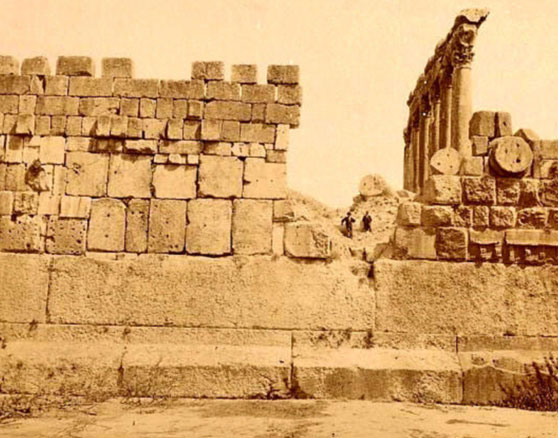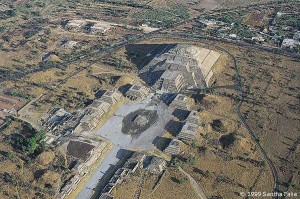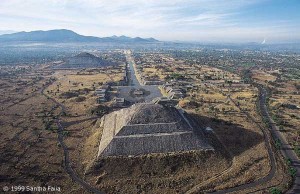- Joined
- Jul 5, 2012
- Messages
- 42,561
- Reaction score
- 13,725
That is the same error in logic people use when applying life on Earth to what all other life in the universe must be like.Sure, societies that were advanced for their time sometimes got wiped, but they weren't advanced by modern standards.
If they were, there'd be evidence of electronics and plastics and numerous other types of things.
While he's clearly not been correct about everything, Hancock is likely to be vindicated in his general premise over time. The whole unveiling of the events by more mainstream entities (Holocene working group) surrounding Younger Dryas over the past decade and future work done in the matter are almost certain to lead to the conclusion that humanity in general barely made it through the period of 12.8 k ybp and 11.6k.Lol. I remember when I first met my wife's step-dad shortly after I started dating her about 11 years ago. He and her mom had us over for dinner and he was telling me about Hancock's books and I was just like:


I think this seems more plausible. There perhaps were pre-civilization civilizations, that may have been advanced by ancient stsndards, and had insight to certain things that took our best mathmaticians until a few hundred years ago to figure out. But in terms of having the equivalent to modern electronics, motorized vehicles, communication devices, air and seacraft, etc, it seems highly improbable.

Yep. Occam's razor says no to this theory.
Good post and props for the nuanced thinking.Plastic is a bi-product of oil. We only use oil thanks to a very specific set of events (England having ready access to easily extractable coal which they could transport along englands rivers and thus cause an "industrial Age", where the west goes from a wind power to a coal then oil one.
An ancient civilisation would not have advanced like Great Britain did and nor would they have used coal. No coal means no oil (as it was early coal era tech that enabled oil to be discovered as a potential fuel source, and it was all profitable and "economical" for the level of tech we had at the time).
No reason advanced ancient civs would follow the same energy path. Making massive structures out of huge pieces of stone isn't even logical for a coal/oil civilisation, wasted energy all round.
Good post and props for the nuanced thinking.
Occam's razor "simplest answer", given what we know about how most humans operate as well as the well documented catastrophic history of this planet would suggest quite the opposite of the inference you responded to by @Oeshon.
nobody is inferring that they were building modern style cars or iphones...both of which mind you, had they existed 12k years ago, would be utterly invisible to us today. If humans suddenly left San Francisco and came back in 2000k years, there would be almost no evidence that the Golden Gate bridge ever stood where it is. The metal would all be gone, perhaps some of the pavement currently holding beams on land would be mildly recognizable though utterly crumbled. The entire city would be unrecognizable outside of perhaps some platforms where buildings had stood crumbled under feet of earth.No way. If there was a more advanced modern society in the past, we would have already found evidence of it by now.
Could there have been societies more sophisticated than we initially believed or knew? Yes. Was there another society making iphones and building cars? Nope.
Is that really true ?The only thing that lasts for millennia is monumental stone work. Everything else is gone.
Im not sure, but isn't that what is described in that Indian text Oppenheimer describes? Nuclear war.
Is it possible? Yes, IMO it is very possible. Not sure on the evidence though.
within a century the golden gate bridge would fall into the bay. Especially things by the sea get corroded away incredibly fast, especially metals from the ocean moisture in the air.Is that really true ?
So for example skyscrapes are all gone in about what 1000 years if they would be abandoned now ?
Will our todays structures be also in place in such year span of few thousands years from now ?
Are you talking about Robert Oppenheimer? The Ghagavad Gita did not describe nuclear war.
Obama praised the kid and invited him to the white houseIt's possible there were some highly advanced societies. I recall a sophisticated clock or tool that was found once - but the details are fuzzy.
The thing I ponder is: if there was ever an advanced society that was somehow destroyed... why haven't they found any fossilized/ancient TVs?
Oppenheiemer studied Sanskrit and was fascinated with the ancient Hindu texts. Even quotes the Gita when talking about his, and his collegue's reaction to the first successful detonation.
From a Q & A at Rochester University:
Student: “Was the bomb exploded at Alamogordo during the Manhattan Project the first one to be detonated?
Dr. Oppenheimer: “Well — yes. In modern times, of course.
That poster is probably referring to the Brahmastra, which are devastating weapons that are described in the ancient Sanskrit texts. Some people liken them to modern day nukes, based on the damage they're said to inflict.
Whether or not you believe them to actually be a reference to an ancient nuclear war, is up to you and your interpretation of the texts themselves.
I've read a couple of his books, listened to a bunch of his interviews/lectures, etc. The guy has done research worth appreciating, imo. Even if you don't agree with the conclusions he draws.
His image gallery alone is pretty good shit:
Teotihuacan, which was discussed in the OP



But, anyway, it's not like this topic is limited to Graham Hancock. If you don't like the guy, examine the other evidence and the work of other people.
Plastic is a bi-product of oil. We only use oil thanks to a very specific set of events (England having ready access to easily extractable coal which they could transport along englands rivers and thus cause an "industrial Age", where the west goes from a wind power to a coal then oil one.
An ancient civilisation would not have advanced like Great Britain did and nor would they have used coal. No coal means no oil (as it was early coal era tech that enabled oil to be discovered as a potential fuel source, and it was all profitable and "economical" for the level of tech we had at the time).
No reason advanced ancient civs would follow the same energy path. Making massive structures out of huge pieces of stone isn't even logical for a coal/oil civilisation, wasted energy all round.
There is evidence everywhere on every continent in the form of human construction that has been misattributed, we just don't have the historical context in which to place the identity of the builders properly.They find fossils of dead animals constantly, made of basic minerals, that nature has preserved for millions of years. I have a hard time believing that if entire advanced civilizations existed mere thousands of years ago, there is little to no evidence to support it.
Sure, but what evidence suggests those civilizations were advanced? Can you cite specific examples? I don't think finding ruins of old structures made of stone, and the occassional mysterious tool they cant understand the function of, is enough to constitute a probability that there were advanced ancient civilizations.There is evidence everywhere on every continent in the form of human construction that has been misattributed, we just don't have the historical context in which to place the identity of the builders properly.
When orthodox "history" is of the opinion that monumental construction only began with Sumer and Egypt circa 7k years ago, that is the baseline for everything, even if some of the structures attributed to those known cultures don't make sense within what we know about what they were likely capable of and what they were proven to have done.
